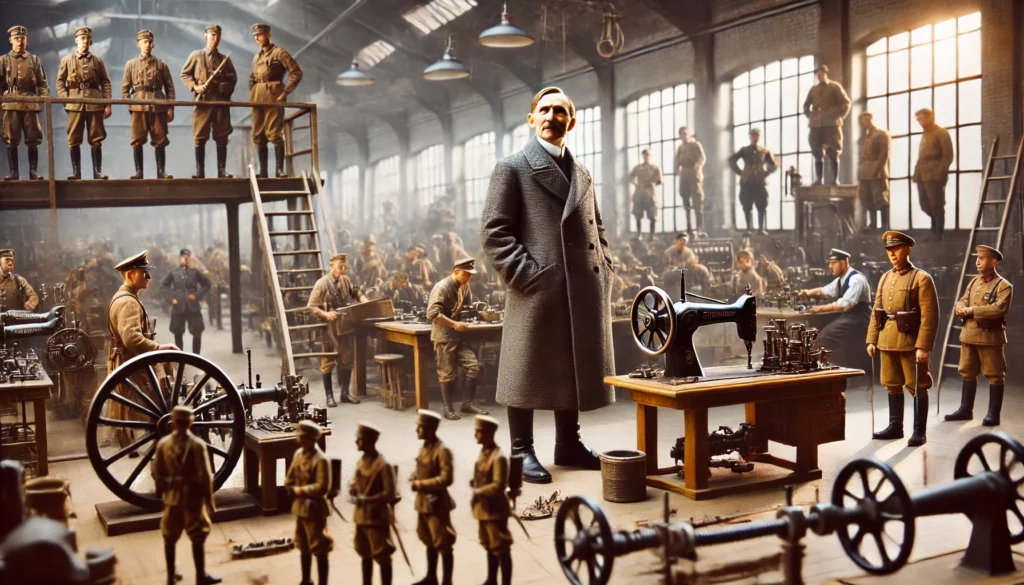Oskar Schindler’s story is one of remarkable transformation and heroism. A businessman and member of the Nazi Party, Schindler used his position and resources to save the lives of over 1,200 Jews during the Holocaust. His courageous actions, immortalized in the book “Schindler’s Ark” and the film “Schindler’s List,” stand as a powerful testament to the impact one individual can have in the face of overwhelming evil.
Early Life and Rise to Power
Oskar Schindler was born on April 28, 1908, in Zwittau, Austria-Hungary (now Svitavy, Czech Republic). He grew up in a wealthy family and enjoyed a privileged upbringing. Schindler’s early life was marked by a series of business ventures and a tumultuous marriage to Emilie Pelzl. Despite his personal flaws, including a reputation for womanizing and heavy drinking, Schindler was a charismatic and resourceful individual.
The Outbreak of World War II
With the outbreak of World War II, Schindler saw an opportunity to profit from the German invasion of Poland. He moved to Krakow and took over a previously Jewish-owned enamelware factory, Deutsche Emailwarenfabrik (DEF), using bribery and his connections within the Nazi Party. The factory initially produced goods for the German military, and Schindler employed Jewish laborers from the Krakow Ghetto, seeing them as a cheap source of labor.
Transformation and Acts of Courage
As the war progressed, Schindler witnessed the brutal treatment and mass extermination of Jews by the Nazis. The turning point in Schindler’s life came during the liquidation of the Krakow Ghetto in 1943, where he saw the horrific reality of the Holocaust firsthand. Deeply moved and horrified by the atrocities, Schindler resolved to protect his Jewish workers at all costs.
Schindler began to use his factory as a haven for Jews, shielding them from deportation to concentration camps. He forged documents, bribed Nazi officials, and manipulated records to ensure the safety of his workers. Schindler’s factory became a vital refuge, where Jews were provided with food, shelter, and relatively humane working conditions.
Schindler’s List

In 1944, as the Nazis intensified their efforts to exterminate the remaining Jews, Schindler took a bold step. He created a list of 1,200 “essential” Jewish workers, arguing that their labor was crucial for the war effort. This list, known as “Schindler’s List,” became a lifeline for those named on it. Schindler arranged for these workers to be transferred to his new factory in Brunnlitz, Czechoslovakia, away from the imminent threat of death in Auschwitz.
The Brunnlitz Factory and Final Acts of Bravery
At the Brunnlitz factory, Schindler continued his efforts to protect his workers. He deliberately produced defective ammunition and military supplies to sabotage the Nazi war effort. Despite the constant risk of discovery and execution, Schindler’s commitment to saving lives never wavered. He exhausted his fortune on bribes and black-market goods to ensure the survival of his workers.
After the War
When the war ended in 1945, Schindler fled to avoid capture by the advancing Soviet forces. He was virtually penniless, having spent his entire fortune on safeguarding his workers. Schindler and his wife Emilie eventually emigrated to Argentina, where they struggled to rebuild their lives. Despite his financial difficulties, Schindler’s legacy as a humanitarian continued to grow.
Recognition and Legacy

In 1962, Oskar Schindler was honored as one of the “Righteous Among the Nations” by Yad Vashem, Israel’s official memorial to the victims of the Holocaust. This recognition is awarded to non-Jews who risked their lives to save Jews during the Holocaust. Schindler’s actions have been commemorated in numerous ways, including the establishment of the Oskar Schindler Museum in Krakow and the preservation of his factory as a historical site.
The story of Oskar Schindler gained widespread recognition through Thomas Keneally’s novel “Schindler’s Ark” and Steven Spielberg’s 1993 film adaptation, “Schindler’s List.” The film’s powerful portrayal of Schindler’s transformation and heroism brought his story to a global audience, cementing his place in history as a beacon of courage and humanity.
Conclusion
Oskar Schindler’s heroism during one of history’s darkest periods serves as a profound reminder of the impact one individual can have in the face of evil. His journey from opportunistic businessman to selfless savior underscores the capacity for change and the enduring power of compassion. Schindler’s legacy continues to inspire and remind us of the potential for goodness in the human spirit, even amidst the most horrific circumstances.